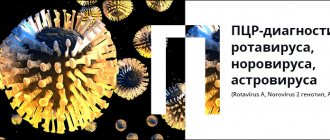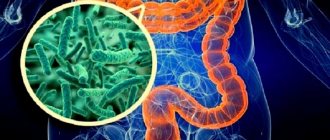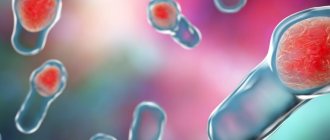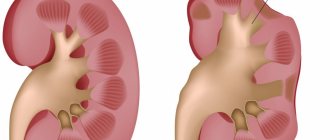Rosa Ismailovna Yagudina, Doctor of Pharm. Sc., prof., head. Department of Organization of Drug Supply and Pharmacoeconomics and Head. laboratory of pharmacoeconomic research of the First Moscow State Medical University named after. I. M. Sechenov. Evgenia Evgenievna Arinina , Ph.D., leading researcher at the laboratory of pharmacoeconomic studies of the First Moscow State Medical University named after. I. M. Sechenov.
With the coming summer, the topic of our article has acquired particular relevance. Intestinal infections are a whole group of infectious diseases that mainly affect the gastrointestinal tract. Acute intestinal infections are second only to acute respiratory diseases in their prevalence. The peak incidence usually occurs in the summer, but intestinal infections caused mainly by viruses are also common in the cold season. However, the most common cause of these diseases is the entry of infectious agents into the gastrointestinal tract with contaminated food and water.
In total, about 30 infectious intestinal diseases are currently known. The most common ones include:
- food toxic infection (mainly of staphylococcal etiology)
- salmonellosis
- dysentery
- enterovirus and rotavirus infection
- cholera
According to the degree of danger, they can be divided into non-hazardous, dangerous and especially dangerous. Thus, food poisoning infections (PTIs) are considered non-hazardous, and cholera, typhoid fever, etc. are considered especially dangerous. But this does not mean that the so-called “non-dangerous” PTI does not cause serious damage to the body and does not lead to complications.
Complications of intestinal infections:
- bacterial infections of the respiratory system and middle ear
- intestinal dysbiosis
- intestinal bleeding
- perforation of the intestinal wall
- intussusception
- bacterial toxic shock
Causative agents of intestinal infection
In addition to infectious agents from the natural environment, an already ill person can become a source of infection. By releasing a large number of pathogenic microorganisms (microbes are excreted in feces, vomit, and sometimes in urine), the patient infects objects around him, and if precautions are not taken, a chain reaction may occur in the spread of infection.
Almost all pathogens of intestinal infections are extremely tenacious. They are able to exist for a long time in soil, water and on various objects (spoons, plates, door handles and furniture). Infectious microorganisms in the external environment not only do not die, but also retain the ability to reproduce, and they reproduce most actively in warm and humid conditions. However, the most favorable environment for the development of bacteria is fermented milk and meat products.
A connection has been established between certain forms of acute intestinal infections and types of food. Thus, dysentery often occurs when consuming milk and dairy products, and intestinal infections caused by staphylococcus occur when consuming dairy products and confectionery products with cream. Yersiniosis usually develops when eating raw vegetables, salads and other plant foods.
The causative agents of intestinal infections can be both bacteria (Salmonella, Shigella, Yersinia, enteropathogenic Escherichia coli, staphylococci) and their toxins (foodborne diseases). Viruses (rotaviruses, enteroviruses, astroviruses, parvoviruses) are still in second place in terms of frequency of occurrence, but recently viral infections have become increasingly widespread. And in last place are the protozoa (giardia, amoebas, blastocysts).
After pathogens enter the human body, as a rule, there is an asymptomatic incubation period, which lasts from 6 to 48 hours - from the entry of microorganisms into the oral cavity until they enter the intestines, where they rapidly multiply. After pathogenic microorganisms have multiplied, the stage of clinical manifestations begins.
NB! If symptoms reminiscent of an acute intestinal infection appear, it is necessary to urgently contact an infectious disease specialist for the correct selection of therapy and the prevention of complications.
An acute period begins - from 1 to 14 days, at this time clinical manifestations from the gastrointestinal tract are most pronounced. As a rule, the period ends when the temperature normalizes and the leading symptom (diarrhea or vomiting) stops.
The convalescence period is at least 2 weeks, and in some cases, in the absence of treatment, up to several years. During this period, the function of the gastrointestinal tract, as a rule, is not fully restored - there may be unstable stools.
Basically, all intestinal infections occur with fairly similar symptoms. They always start suddenly. At the very beginning of the disease, severe weakness, lethargy, loss of appetite, headache, fever appear - nonspecific symptoms that may resemble symptoms of respiratory viral infections. However, nausea, vomiting, cramping abdominal pain, diarrhea mixed with mucus, pus or blood (for example, with dysentery) soon occur; thirst and chills may also bother you. Among the clinical manifestations of the gastrointestinal tract, as a rule, the most pronounced symptoms are those associated with the affected organ:
- nausea, vomiting and pain in the epigastric region (with gastritis);
- diarrhea (with enteritis);
- vomiting and diarrhea (with gastroenteritis);
- blood in the stool and its disorders (with colitis);
- damage to the entire intestine (with enterocolitis).
One of the most unfavorable consequences of an intestinal infection is dehydration of the body due to vomiting and/or diarrhea and, as a result, disruption of water and electrolyte metabolism. The result of sudden dehydration can even be shock.
However, sometimes intestinal infections may not have visible symptoms, but are accompanied by the release of pathogens. In terms of the spread of infection, such carriage is the most dangerous: an unsuspecting person becomes a constant source of infection, infecting others.
It is important for the doctor to make a differential diagnosis between an intestinal infection and somatic diseases with similar symptoms: diarrhea associated with taking medications, acute appendicitis, myocardial infarction, pneumonia, ectopic pregnancy, etc.
Who should be tested for intestinal group?
If symptoms of the disease are present, all patients should be tested. During and after treatment, the study will need to be repeated at least three times to be sure of the absence of bacterial carriage and safety for your family and work team members.
For preventive purposes, they are compulsorily tested (they are suspended from work if the study is not carried out):
- medical workers in children's and infectious diseases departments, maternity hospitals;
- staff of preschool institutions and schools, summer camps;
- food workers (cooks, waiters);
- people by profession associated with the production and processing of products, packaging, transportation (workers of dairy plants, bakeries, culinary shops, etc.);
- people who sell products in stores and markets (sellers, meat cutters).
Citizens are received from Monday to Friday at the address: Naberezhnye Chelny, Nizametdinova St., 14, at the reception on the 1st floor from 8.00. until 10.00.
Results are issued from Monday to Friday at the registration desk from 12.30. until 15.00.
You can get detailed information by calling a specialist by phone.
The article was helpful! Let others know! ?
Do you have a question? Write to us!✍
Share link:
- Seal
- Telegram
Diagnosis and treatment of intestinal infection
There are various complementary methods for laboratory diagnosis of intestinal infections:
- Isolation of the pathogen and its antigens (toxins) from the blood
- Bacteriological research: isolation and typing of the pathogen in cultures of stool, other biological secretions and excreta of the patient’s body
- Virological research: isolation of the virus from stool in cell culture or by electron microscopy
- Microscopic examination: detection of parasites in smears of native feces after treatment with special dyes
- Detection of serum antibodies to pathogen antigens and the increase in their titer: serological examination using special diagnostic tests (RPGA, RIGA, ELISA, etc.); titer increase 4 times.
Basic principles of treatment of intestinal infections:
- combating the pathogen (antibacterial therapy);
- combating dehydration (as a rule, to eliminate the lack of fluid, patients are prescribed saline solutions);
- elimination of diarrhea (enterosorbents);
- following a gentle diet (excluding fresh vegetables and fruits, dairy products, sweets).
During illness, it is necessary to follow a diet that helps slow down intestinal motility. Products with a high tannin content are recommended (blueberries, bird cherry, strong tea); substances with a viscous consistency (mucoid soups, pureed porridges, jelly); crackers; indifferent substances - steamed dishes from lean meat and fish. An important step in the treatment of intestinal infections is the exclusion of fried and fatty foods, raw vegetables and fruits from the diet.
The main direction of therapeutic tactics is the neutralization of exotoxins in the intestines (enterosorbents) and rehydration - compensation for pathological losses of fluid and electrolytes with specially developed glucose-saline solutions. The volume of injected solutions depends on the degree of dehydration and body weight of the patient, and the injection rate is 1–1.5 l/h. Detoxification and rehydration therapy can be administered orally in 85–95% of cases.
Antibiotics can only be prescribed by an infectious disease specialist, taking into account the laboratory tests performed and the identified causative agent of the infection. However, in case of severe diarrhea, for accelerated sanitation, it is justified to prescribe antibacterial drugs that are not absorbed or poorly absorbed from the intestine and have a wide spectrum of action (for example, enterofuril or co-trimoxazole). Enterosorbents and probiotics are effective means of alternative etiotropic therapy as drugs for acute intestinal infection. The etiotropic effect of probiotics is associated with pronounced antagonistic activity against all pathogens of acute intestinal infections (AIE) of bacterial etiology and an indirect immunomodulatory effect on the local immune system.
How to properly prepare for research?
Preparation for taking this test is exactly the same as for testing for dysbacteriosis.
- the study is recommended to be carried out before starting antibiotics and other antibacterial chemotherapeutic drugs;
- exclude the use of laxatives, the introduction of rectal suppositories, oils, limit (in consultation with the doctor) the use of medications that affect intestinal motility.
Review of drugs for the treatment of intestinal infections
Nifuroxazide (enterofuril)
An over-the-counter broad-spectrum antimicrobial agent, a derivative of 5‑nitrofuran. The antimicrobial activity of nifuroxazide is caused by the presence of a NO2 group in its composition, which inhibits the activity of dehydrogenase and disrupts protein synthesis in pathogenic bacteria.
Nifuroxazide has no effect on saprophytic flora and does not disturb the balance of normal intestinal flora. In acute bacterial diarrhea, it restores intestinal eubiosis. When infected with enterotropic viruses, it prevents the development of bacterial superinfection. This drug for the treatment of intestinal infections can be prescribed to pregnant and lactating women and children starting from one month. Therapy with nifuroxazide should not exceed 7 days, and drinking alcohol is prohibited.
Kipferon
An over-the-counter drug in the form of vaginal and rectal suppositories. It has immunomodulatory, antiviral, antichlamydial effects. Kipferon is a complex dosage form containing human recombinant interferon-α2 and a complex immunoglobulin preparation (CIP). Approved for use in children in the first year of life.
Co-trimoxazole (sulfamethoxazole + trimethoprim)
The mechanism of action of co-trimoxazole is due to double blocking of the metabolism of microorganisms. Trimethoprim reversibly inhibits dihydrofolate reductase of microorganisms, disrupts the formation of tetrahydrofolic acid from dihydrofolic acid, the production of nucleic acids, pyrimidine and purine bases; inhibits the reproduction and growth of bacteria. Sulfamethoxazole, which is similar in structure to para-aminobenzoic acid, is taken up by the bacterium and prevents the incorporation of para-aminobenzoic acid into dihydrofolic acid. Due to the fact that co-trimoxazole inhibits the vital activity of E. coli, the formation of nicotinic acid, riboflavin, thiamine and other B-complex vitamins in the intestines is reduced. This medicine, which helps against intestinal infections, is available by prescription and is used from 2 months of age.
Baktisubtil - spores of the bacteria Bacillus cereus IP. The prescription drug for intestinal infections, bactisubtil, preserves and corrects the physiological balance of the intestinal flora. The bacterial spores contained in the preparation are resistant to the action of gastric juice. The germination of bacteria into vegetative forms occurs in the intestines, then they release enzymes that break down carbohydrates, fats, and proteins. As a result, an acidic environment is formed, which prevents decay processes. The drug prevents disruption of the synthesis of vitamins B and P in the intestines; it should not be taken hot or combined with alcohol. It is prescribed to children from the age of seven. Baktisubtil is resistant to the action of various antibiotics and sulfonamide drugs, so it can be prescribed simultaneously with them.
Dextrose + potassium chloride + sodium chloride + sodium citrate (rehydron)
A rehydrating agent for oral administration restores the water-electrolyte balance disturbed by dehydration of the body; corrects acidosis. The contents of one sachet are dissolved in a liter of freshly boiled chilled drinking water. The prepared solution should be stored in the refrigerator and used within 24 hours. No other components should be added to the solution so as not to disrupt the effect of the drug. Available without a prescription.
Dioctahedral smectite
An over-the-counter drug of natural origin that has a protective effect on the intestinal mucosa and pronounced adsorbing properties. Being a stabilizer of the mucous barrier, it forms polyvalent bonds with mucus glycoproteins and increases its life expectancy, forming a physical barrier that protects the mucous membrane of the digestive tract from the negative effects of H+ ions, hydrochloric acid, bile salts, microorganisms, their toxins and other irritants. It has selective sorption properties, protects the mucous membrane of the digestive tract from negative effects. In therapeutic doses it does not affect intestinal motility.
Prevention of intestinal infections, including acute ones
To prevent intestinal infections, it is important to regularly wash your hands and wet clean your apartment. It is better to immediately throw out expired products, do not buy them in places with unclear storage conditions - no matter how attractive, say, mushrooms from your grandmother near the metro may be - and only eat fruits and vegetables that have been thoroughly washed.
Early diagnosis and isolation of a patient with an intestinal infection will help avoid the spread of the disease. In the source of infection, you need to treat surfaces with disinfectant solutions and boil the dishes. Patients are discharged only after a negative result of a control stool examination. Anyone who has had an intestinal infection must undergo regular follow-up at the clinic for a month.
Simple measures to prevent intestinal infections:
- drink water and milk only when boiled
- wash vegetables and fruits with hot water and soap
- follow the rules and terms of food storage
- wash your hands before eating








